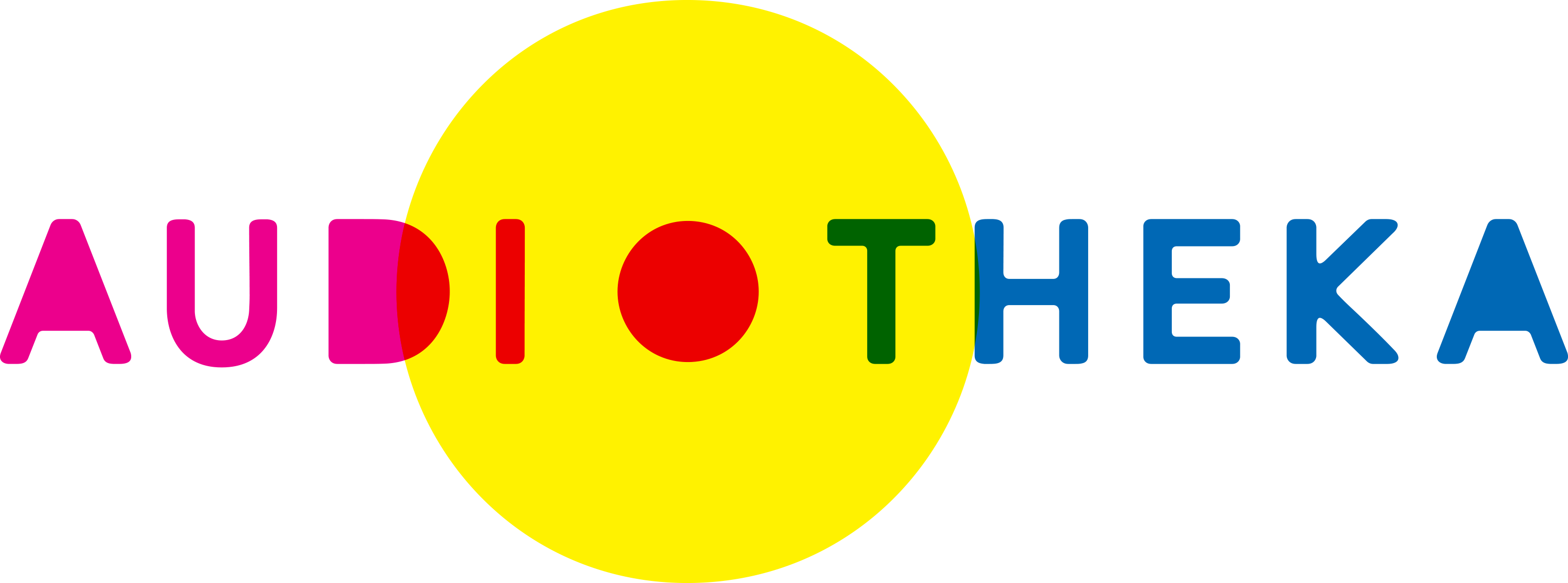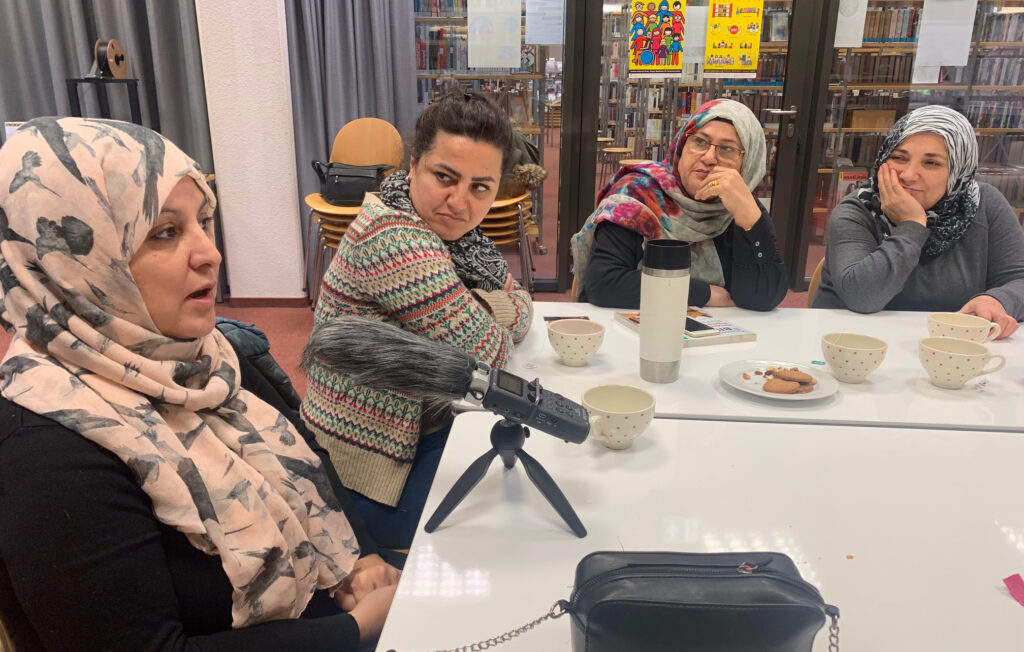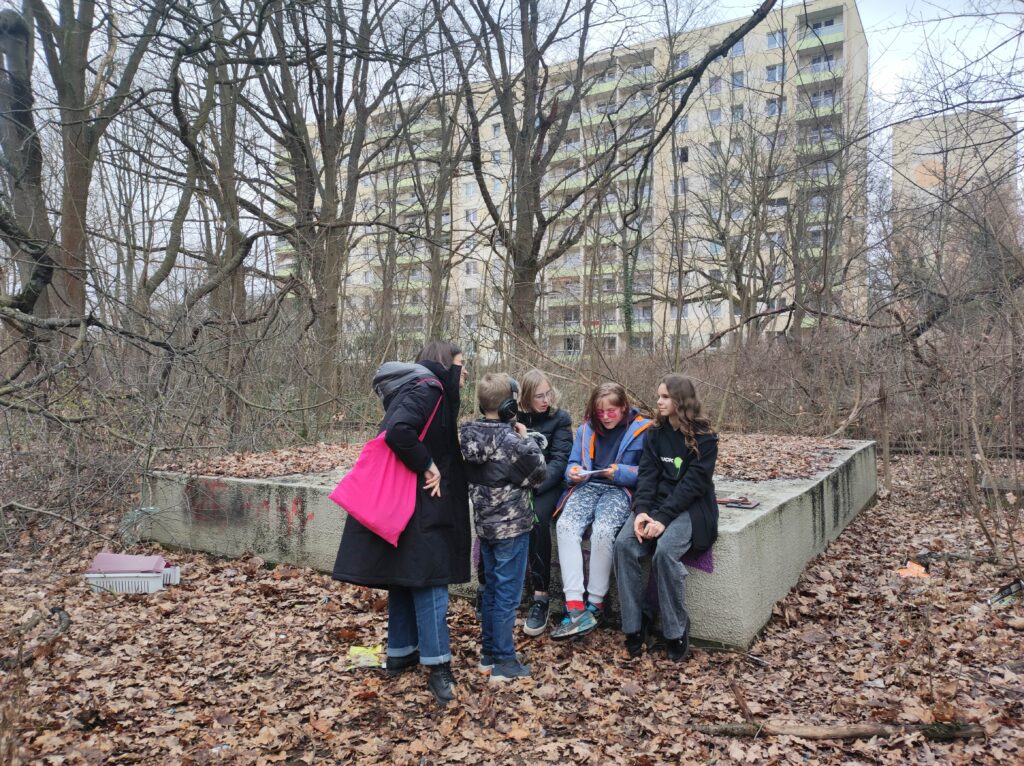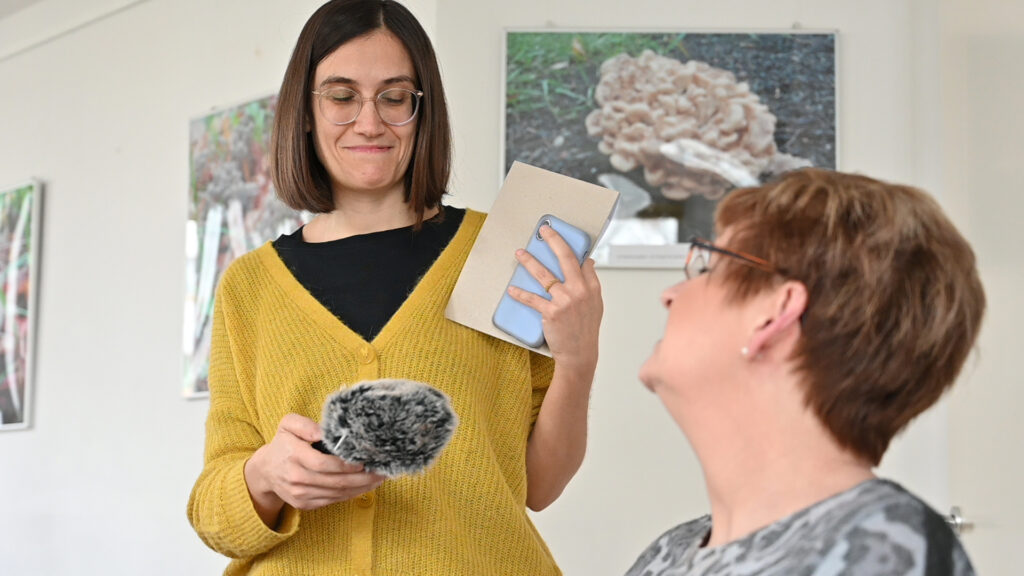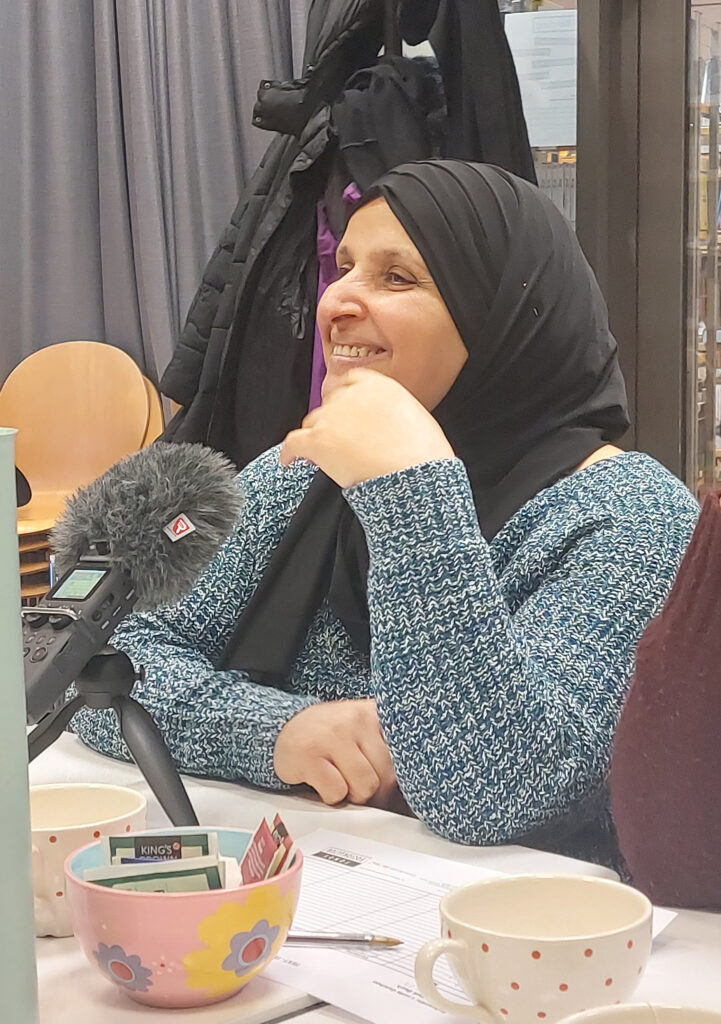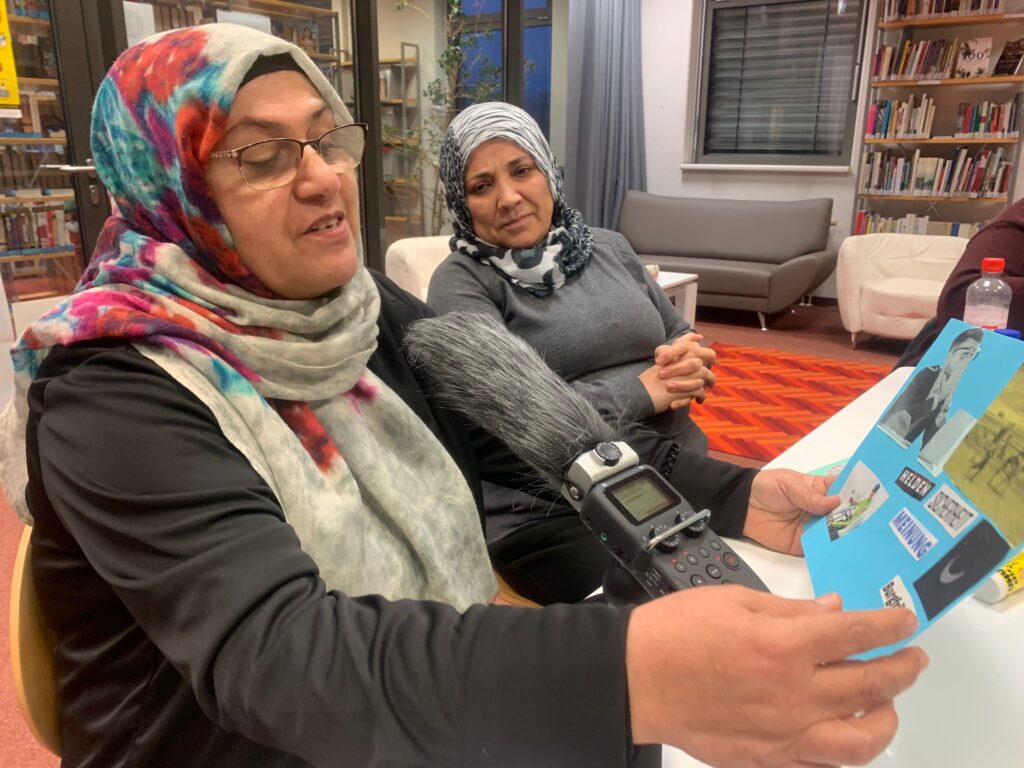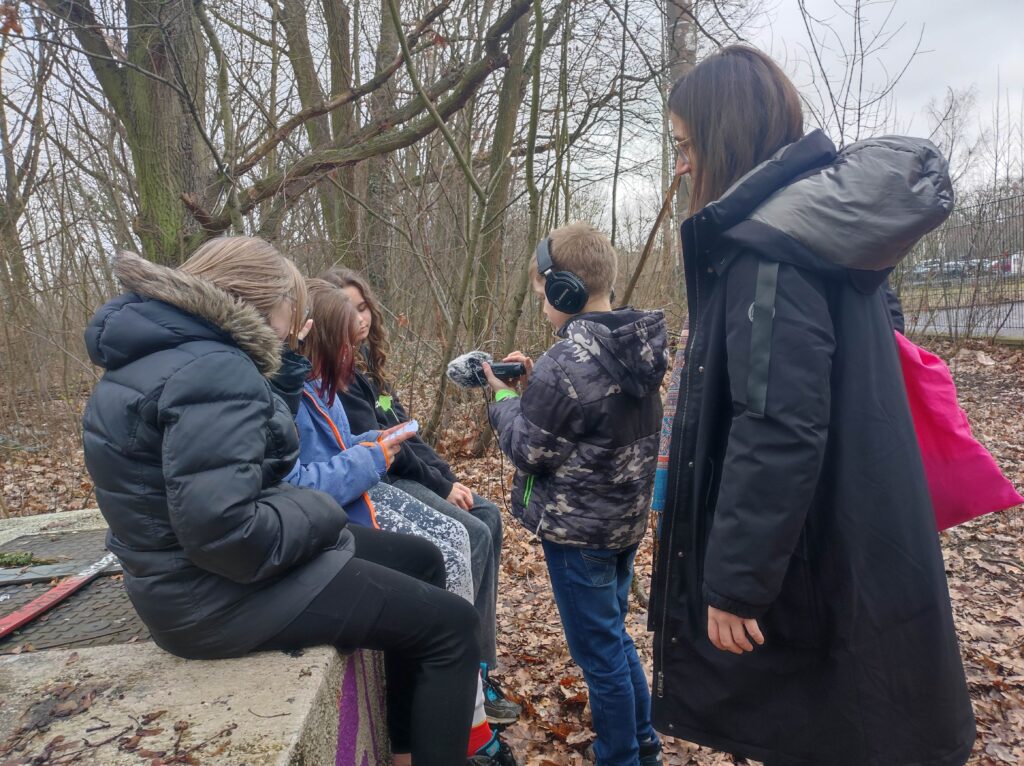Audiotheka
Pilot project
AUDIOTHEKA is a PILOT project in which neighbours from Buch and Karow deal with their urban environment. With the help of artists we experiment with different ways of storytelling and discovering sounds of the city. Together we make audio recordings, which are then donated to the local libraries as a collection. AUDIOTHEKA is a digital archive of multilingual audio contributions that neighbors donate to local libraries.
The perspectives of the participants of the workshops are summarized in personal audio contributions at the end. All the stories together form AUDIOTHEKA.
In cooperation with:
Kinderclub Der Würfel
Stadtteilbibliothek Buch
Stadtteilzentrum im Turm
BuKa /Mamis en Movimiento

